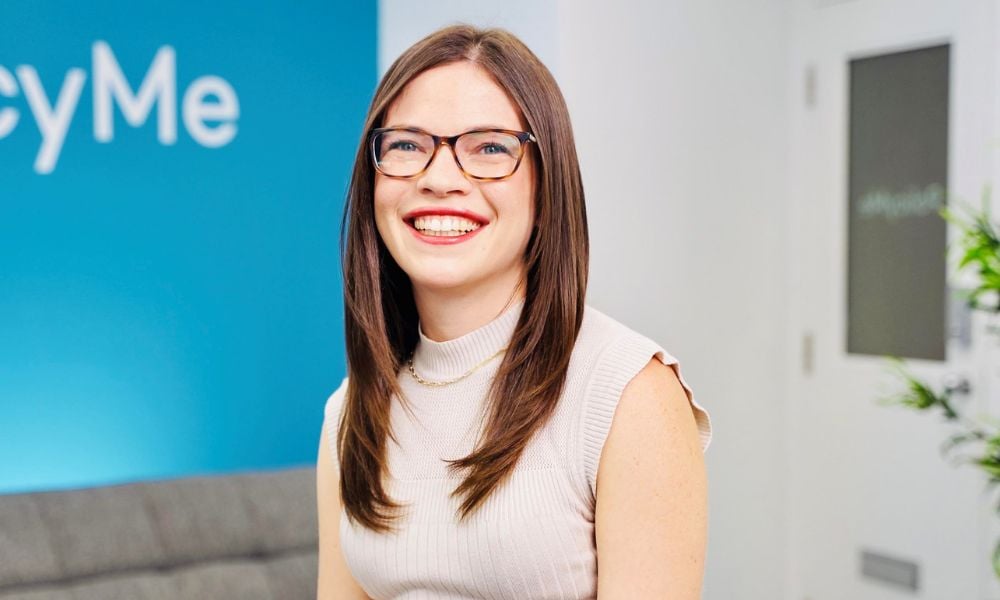
'It's about how you can create a differentiated employee experience,' says VP of people and culture

While many employers are struggling with employers leaving, one Toronto startup has found success in growing its staff.
Since March 2020, PolicyMe has nearly tripled its workforce to just under 50, according to Vanesa Cotlar, VP of people and culture at the digital-first insurance provider.
One of the big reasons for this success is a “career pathing” program. This involves looking at the levels within the organization across a variety of roles, “and creating journeys that individuals can progress through,” says Cotlar.
“You may be starting as a junior designer on the product team, and you might want to understand: How does a junior designer become, one day, a director of design? And what are all the skills required for the job as well as the leadership side of things?”
“Basically, we outline everything,” she says, including the skills required for a specific role and the level of autonomy expected in the work. This is a way for individuals to know what to expect and for the company to be transparent throughout their employees’ progress.
Employee turnover is becoming an increasingly costly problem that continues to plague Canadian employers, according to a survey from The Harris Poll commissioned by Express Employment Professionals of 504 hiring decision-makers in May.
It’s time to re-imagine how to keep the talent you’ve worked hard to find, and it all boils down to the very first impression, according to a recent report.
While PolicyMe is currently in a remote work setup, they still make it a priority to bring people together in person.
“Intentionally coming together a couple times a year also helps people build stronger bonds and connections across the company,” says Cotlar.
In their last get-together in September, the company took staff treetop trekking.
“We went out and we did a little bit of climbing and a tree ziplining. It was a super fun day,” she says, adding that anyone who was uncomfortable with the venture could do a walk in a nearby park.
“We try to essentially create something that is memorable, so people have the opportunity to be in a shared space and have a shared experience that then they can think about when they're working from home or working from wherever they choose as well,” says Cotlar.
“When thinking about retention, it's awesome to think about how you can actually create a differentiated employee experience, coupling those components around flexibility. So letting people work from wherever they do their best work, but also, when you're bringing them together, not just bringing people together for something that they can do over Zoom.”
PolicyMe also holds monthly town hall meetings to talk about the current state of the business and answer any questions.
“People can literally ask anything, and we get all sorts of questions about where things are at. And essentially, that gives people an opportunity to get any information they want about where things are at in the business,” says Cotlar.
The company also runs engagement surveys on a quarterly basis, and actually listens to people, she says. For example, the company previously offered a health spending program, instead of a full health benefits plan. However, this proved to be important to their workers.
“We said, ‘OK, this is a big investment, we're going to do it because it's something that matters to our people’. And now we're launching a very comprehensive benefits plan with some best-in-class components.”
This is an essential part of the company’s trust-building efforts, according to Cotlar
“Feeling heard is one of those things that really helps build that trust, because it's about being able to voice what you need, and seeing that someone is listening on the other end and doing something about it.”
Nearly half of employees worldwide (46%) would not recommend their company or their profession to their children or any young person they care about, according to a recent survey.
In time for the holidays, PolicyMe recently sent every employee a “swag box” that contained a shirt, mug and notebook.
“Everyone was taking pictures and uploaded them to Slack. And it wasn't even like [we told them to] take a picture and put it on Slack. It just happened organically, because everyone was just so excited to get this little package in the mail.. This is such a small thing, but it makes such a difference.”